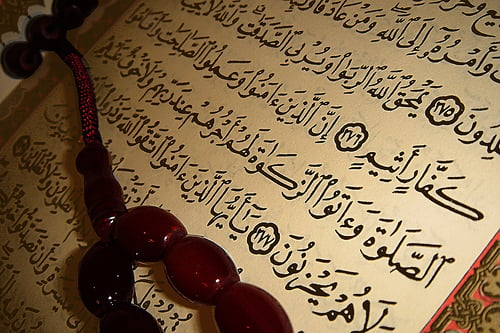
Continuing with a manuscript-in-progress:
But there is a deeper theological reason for the claim that the Qur’an cannot truly be translated, that what results from the process of translation is something related to the Qur’an but cannot properly be said to be identical with it. I have said that Muslims believe the Qur’an to be the word of God. We hear such a phrase— “the word of God”—and think we know what it means. But Muslims take the phrase more literally than even the most conservative Protestant does. Many Protestants will say that the Bible is the inerrant word of God. But they do not mean to deny by that claim that the personality of Paul is visible in his letters, or that Isaiah and Ezekiel can be distinguished. God, they will say, inspired Matthew to write his gospel, but did not obliterate his personality in the process. So it is not surprising, in their view, to discover that Matthew takes a different approach, and manifests a different style and personality, than does, say, the gospel of John. This, however, is not the Muslim view of the Qur’an. There is, according to Muslims, no trace of Muhammad’s personality or environment in the scripture that was revealed through him. He was the transmitter, nothing more.
This explains one of the reasons why the Qur’an cannot be considered equivalent to the Bible or the Book of Mormon. It is not a contemporary history of the ministry of Muhammad, it contains no biography of Muhammad, and nowhere in the book does Muhammad speak. This is very different from the Book of Mormon and the Bible, in which inspired prophets chronicle the events of their days, pointing out the lessons that we should learn. Direct revelations are included in both volumes, of course, but they jostle with histories, poems, sermons, proverbs, letters, and numerous other literary forms. In the Qur’an, by contrast, there is only the imperious voice of God. I myself prefer to compare the Qur’an—if I must compare it to anything in our own more familiar experience—to the Doctrine and Covenants. Like the sections of the Doctrine and Covenants, the 114 suras of the Qur’an are arranged in roughly chronological order. (With a twist, however. The Qur’anic revelations are placed more or less in reverse order, so that, excepting the opening chapter, the earliest of them are at the back of the book in most editions.)[1]
[1] Length seems to have been the real organizing principle in the case of the Qur’an. The later revelations are longer than the earlier ones, and the chapters are arranged in order of decreasing length.











